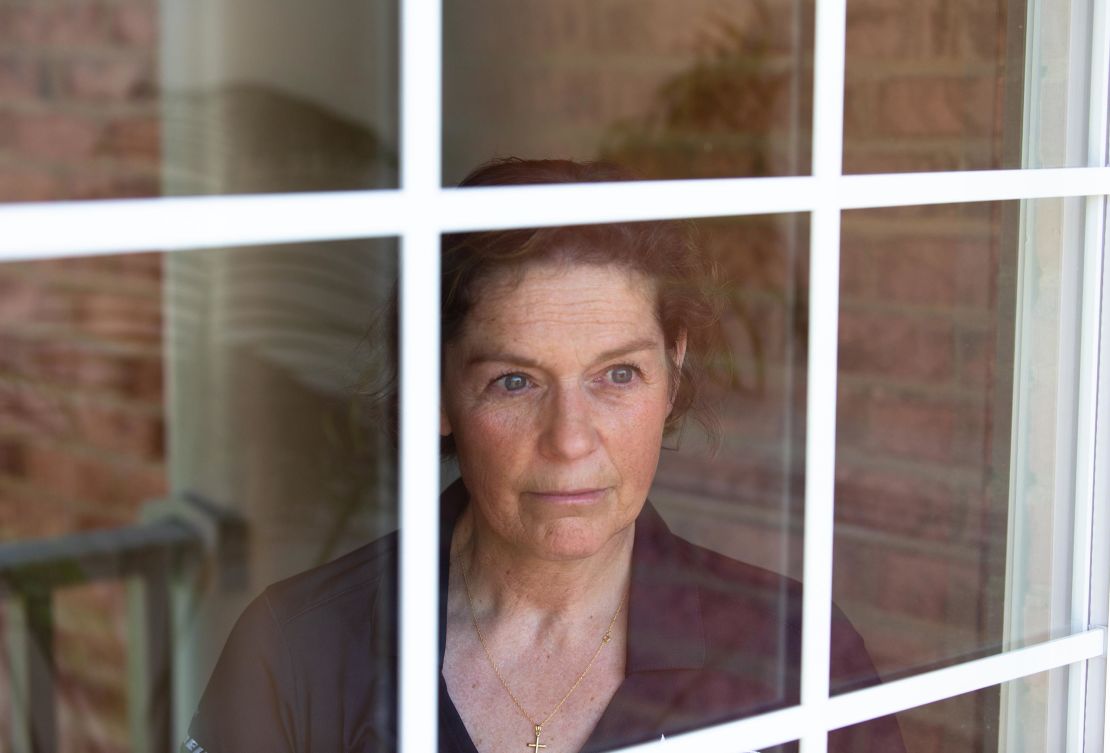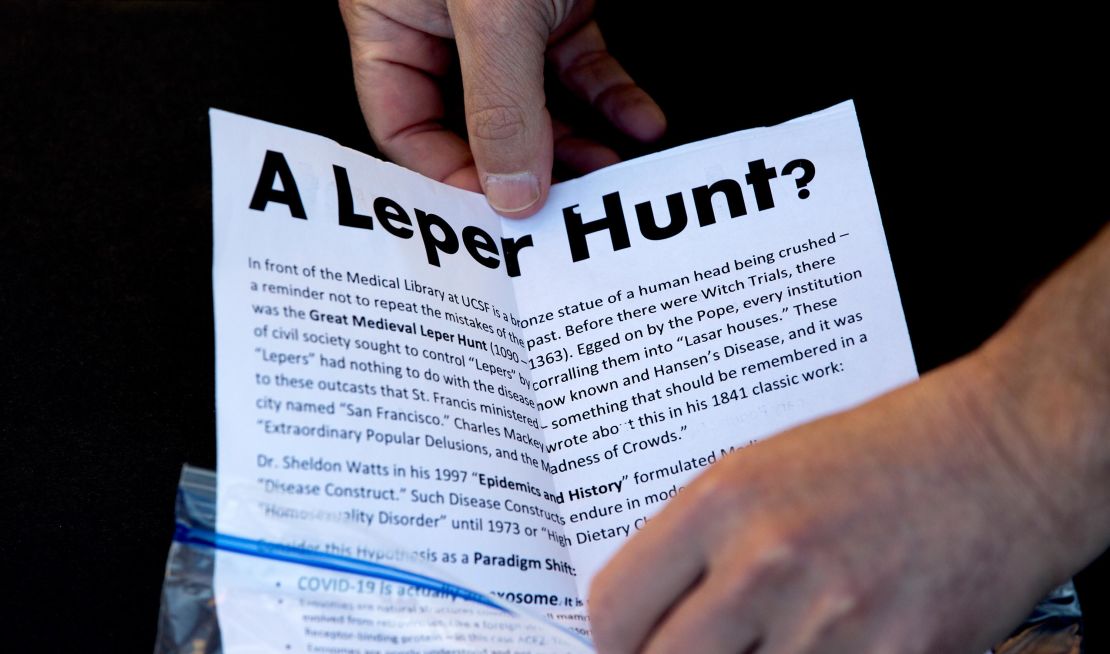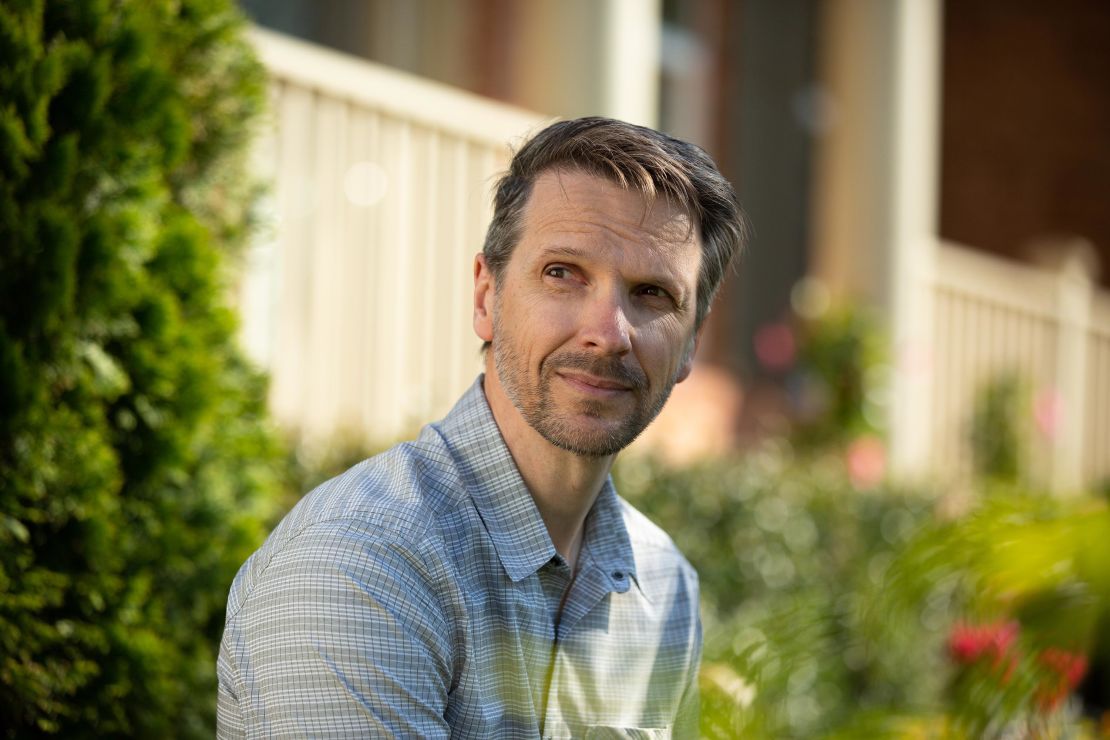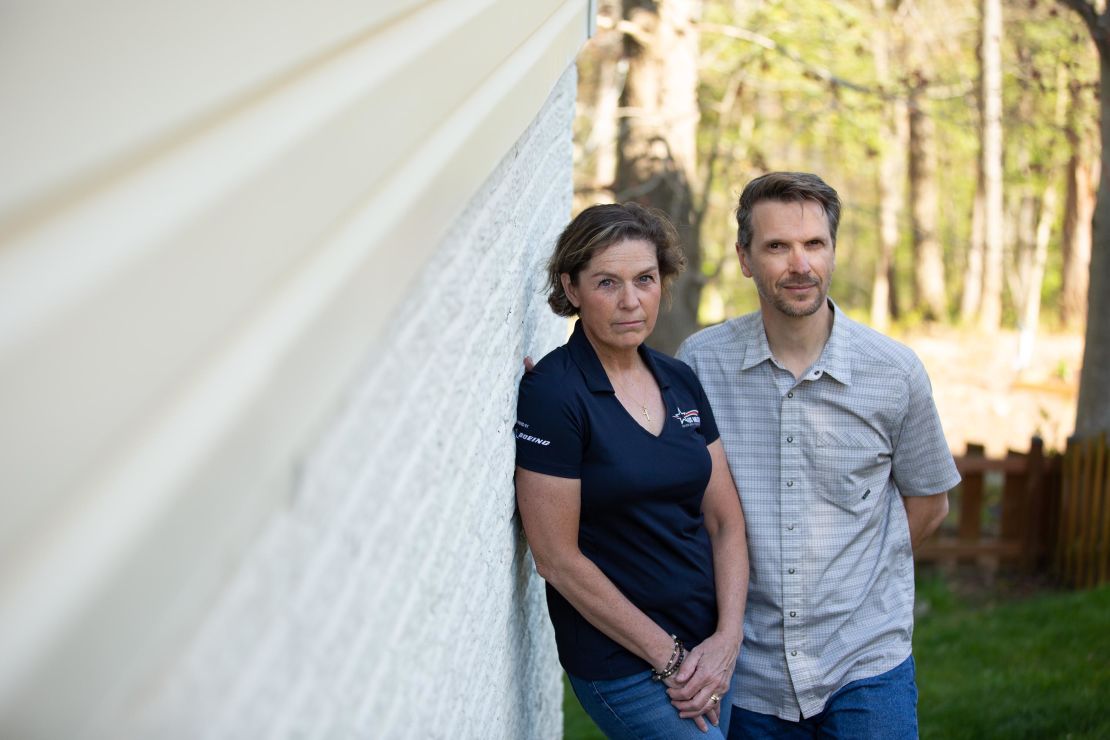Maatje Benassi, a US Army reservist and mother of two, has become the target of conspiracy theorists who falsely place her at the beginning of the coronavirus pandemic, saying she brought the disease to China.
The false claims are spreading across YouTube every day, so far racking up hundreds of thousands of apparent views, and have been embraced by Chinese Communist Party media. Despite never having tested positive for the coronavirus or experienced symptoms, Benassi and her husband are now subjects of discussion on Chinese social media about the outbreak, including among accounts that are known drivers of large-scale coordinated activities by their followers.
The claims have turned their lives upside down. The couple say their home address has been posted online and that, before they shut down their accounts, their social media inboxes were overrun with messages from believers of the conspiracy.
“It’s like waking up from a bad dream going into a nightmare day after day,” Maatje Benassi told CNN Business in an exclusive interview, the first time she has spoken publicly since being smeared online.

As the coronavirus has spread around the world, so has misinformation about the disease. Technology giants have touted the steps they are taking to combat coronavirus misinformation, but these efforts have failed to help the Benassis. The family’s suffering highlights the potential for blatant falsehoods to be rewarded and amplified by social media platforms. It also serves as a powerful reminder that misinformation online, however wild or obviously untrue it may seem, can have real and lasting consequences offline.
Maajte and her husband Matt are still active in their government jobs. Maajte is a civilian employee at the US Army’s Fort Belvoir in Virginia where she works as a security officer. Matt, a retired Air Force officer, is a civilian employee with the Air Force at the Pentagon.
Despite working for the US government, the couple are experiencing the same feelings of helplessness familiar to others who have been the target of harassment and misinformation. “I want everybody to stop harassing me, because this is cyberbullying to me and it’s gone way out of hand,” Maajte said while fighting back tears.
Matt has tried to get the videos taken down from YouTube and to prevent their spread online. The couple said they contacted an attorney, who told them there was little that could be done, and local police, who told them much the same.
Origins of a coronavirus conspiracy theory
Conspiracy theories are not dissimilar to viruses, in that they evolve and mutate to spread and survive. Before Maatje Benassi became the main protagonist in this conspiracy, variations had circulated online for months.
In the early weeks of the coronavirus, conspiracy theorists began claiming, without evidence, that it was a US biological weapon. Later one member of the Chinese government publicly promoted the notion that the US military brought the virus to China. US Defense Secretary Mark Esper said it was “completely ridiculous and it’s irresponsible” for someone speaking on behalf of the Chinese government to promote such a claim.
It wasn’t until March, months after the first reported coronavirus cases in China, that conspiracy theorists turned their focus to Maatje Benassi. The baseless theory began with her participation in October in the Military World Games, essentially the military Olympics, which was hosted by Wuhan, the Chinese city where the coronavirus outbreak began last year.
Maatje Benassi competed in the cycling competition there, suffering an accident on the final lap that left her with a fractured rib and a concussion. Despite the crash, Benassi still finished the race, but it turned out to be the start of something worse. While hundreds of athletes from the US military took part in the games, Maatje Benassi was plucked out of the group and given a starring role in the conspiracy theory.

Perhaps the most prominent cheerleader of the idea that Benassi had a role in the imaginary plot to infect the world is George Webb, a prolific 59-year-old American misinformation peddler. Webb has for years regularly streamed hours of diatribe live on YouTube, where he has amassed more than 27 million views and almost 100,000 followers.
In 2017, CNN revealed how Webb was part of a trio of conspiracy theorists that pushed a false rumor about a cargo ship with a “dirty bomb” that was set to arrive at the Port of Charleston in South Carolina. The bomb never materialized, but the claims did lead to parts of the port – one of the biggest in America – being shut down for a time as a safety precaution.
Until recently, Webb said, his YouTube videos included advertisements – meaning the platform, which is owned by Google, was making money from Webb’s misinformation, as was Webb himself.
Webb even claimed that the Italian DJ Benny Benassi, whose 2002 song “Satisfaction” became a worldwide sensation, had the coronavirus and that he, along with Maatje and Matt Benassi, were part of a Benassi plot connected to the virus. (Benny told CNN Business he has never met Maatje and Matt, and they said that as far as they know, they are not related. Benny pointed out that Benassi is a very common last name in Italy.)
Benny Benassi told CNN Business he has not been diagnosed with the coronavirus. Like artists around the world, he canceled his concerts because of social distancing and travel restrictions. (Webb previously claimed the DJ is Dutch, he is not.)
In a phone interview with CNN Business on Thursday, which he livestreamed to his followers on YouTube, Webb offered no substantive evidence to support his claims about the Benassis and said he considered himself an “investigative reporter,” not a conspiracy theorist.
He also said that YouTube recently stopped running ads on his videos after he began talking about the coronavirus. Webb said he had normally made a few hundred dollars a month directly from YouTube.
YouTube confirmed to CNN that it was not currently running ads on Webb’s channel, but it declined to say whether ads appeared there in the past or provide details on how much money his channel may have made. A company spokesperson said YouTube was committed to promoting accurate information about the coronavirus. The company removed some threatening comments about the Benassis that had been posted under Webb’s videos when asked about them by CNN Business. YouTube also said it had removed some videos posted by Webb in the past.
False theories online spark real world concerns
While the allegations about the Benassis may be wildly untrue, the threats they face and the fear they feel are very real.
Matt Benassi said he fears this could “turn into another Pizzagate,” referencing another baseless conspiracy theory that claimed a pedophilia ring that somehow involved Hillary Clinton, among others, was operating out of a Washington DC pizzeria. The fringe theory didn’t receive much mainstream attention until a man showed up at the pizzeria in late 2016 and fired an assault weapon, saying he was there to investigate “Pizzagate.”

“It’s really hard to hold him [Webb] accountable,” Matt Benassi said. “Law enforcement will tell you that there’s nothing that we can do about it because we have free speech in this country. Then they say, ‘Go talk to a civil attorney,’ so we did. We talked to an attorney. You quickly realize that for folks like us, it’s just too expensive to litigate something like this. We get no recourse from law enforcement. We get no recourse from the courts.”
Matt Benassi said he has complained to YouTube but even when the company does take videos down it can take days for it to do so. By that time, a video can go viral, and the damage is done. Worse still: videos Webb has posted to YouTube that are removed are often re-uploaded to the platform.
In China, the YouTube videos attacking the Benassis are uploaded to popular platforms there such as WeChat, Weibo, and Xigua Video and are translated into Chinese, according to an analysis by Keenan Chen, a researcher at First Draft, a non-profit that researches disinformation.

The Benassis’ experience is unfortunately not unique, said Danielle Citron, a professor of law at Boston University School of Law and a MacArthur Fellow who studies online harassment. Faced with “cyber mobs,” as Citron describes them, law enforcement often can’t or won’t investigate.
As for the likes of YouTube, Citron said the law has to change: “Right now, they’re totally immune from legal liability under federal law. And so they can just walk away.”
Whatever happens next, “the damage is done,” according to Maatje Benassi. “I know it [will] never be the same. Every time you’re going to Google my name, it will pop up as patient zero.”

